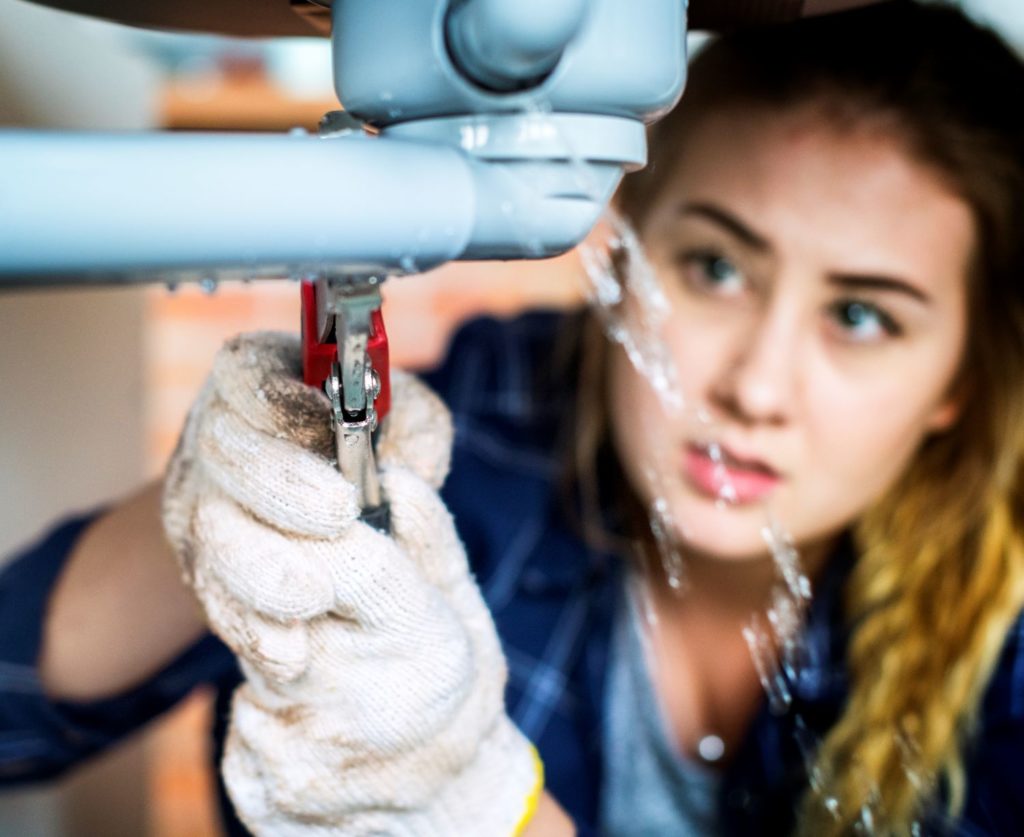If you are currently experiencing an emergency, contact emergency services.
When a home emergency strikes, it often happens at the worst possible time. A burst pipe, roof damage, or a broken window can leave anyone feeling panicked. While you can’t predict when these problems will happen, you can prepare for them and know what steps to take. Here’s a guide to help you handle common home emergencies and quickly find reliable repair services when needed.

1. Common Home Emergencies and Initial Steps
Plumbing Leaks or Flooding
Few things are as stressful as discovering water pooling on the floor or dripping from the ceiling. In case of a plumbing leak, your first move should be to shut off the main water valve. It’s a good idea to know where this valve is before an emergency happens! After stopping the flow, contain the water by placing buckets or towels, and try to identify the source of the leak. If it’s a small leak from a pipe or fixture, you may be able to manage it with a temporary fix, like plumber’s tape, until help arrives.
Electrical Failures or Sparks
Electrical problems can be dangerous and lead to home fires, so safety should always come first. If you see sparks, smell something burning, or experience a power outage in a specific area of your home, locate your breaker box and switch off the breaker for that area. Never touch any electrical components with wet hands or near water. It’s also very important to avoid DIY fixes for electrical issues—call a licensed electrician as soon as possible.
Roof Damage or Leaks
Damage to your roof—especially during extreme weather—may lead to serious leaks and water damage. If you notice a leak, place buckets or towels under the drip to minimize the impact on your floors or carpet. If it’s safe to do so, cover the damaged section of the roof with a tarp. Do NOT climb on the roof if it is slippery or unstable, or if the weather conditions are unsafe. Call a professional roofer as soon as possible to take a look at the damage.
Broken Windows or Door Issues
A broken door or window can put your home’s security in jeopardy. For cleaning up broken windows, make sure you wear heavy-duty gloves to handle glass fragments. After removing the glass, use a sturdy material like plywood or thick plastic to temporarily cover the opening until you can get it fixed.
If a door is stuck or damaged in some way (i.e., the lock is broken), securing your home until you can get it repaired should be your priority. This is another situation where you may want to find professional help sooner than later.
2. Safety First: When to Call a Professional
While it’s important to know basic steps to manage an emergency repair, some situations require expert help right away. Issues like gas leaks, major electrical sparks, or flooding can pose serious risks to you and your home’s safety. If you suspect a gas leak (often signaled by a rotten egg smell or unusually high reading on your home’s natural gas meter), evacuate the house immediately and call your gas company’s emergency line from a safe distance. For other urgent issues, it’s typically a good idea to call a professional or emergency services to handle the situation.
3. How to Quickly Find and Verify Repair Services
When you’re in the middle of an emergency, finding the right repair service quickly is key.
Where to Look
Online search engines, community forums, and neighborhood social media groups can provide a good starting point. You may also have a list of local contractors saved from previous repairs or recommendations. Some companies offer 24/7 emergency services, so prioritize those in urgent situations.
What to Check
Before you hire a service, take just a moment to vet them. Look for:
- Proper licensing and liability insurance
- Real customer reviews or ratings
- How long they’ve been in business
- Availability for emergency or after-hours work
Legitimate contractors should have their licensing credentials readily available on their website or be willing to provide them when asked.
Ask the Right Questions
When talking to a repair service or contractor, make sure you ask the right questions to make sure you’re getting the service you need.
- What is their ETA or response time? Are they available immediately?
- Do they offer a free estimate?
- What’s their rate for emergency services, and how does it compare to services completed during regular hours?
- Can they provide a timeline for the repair?
Getting clear answers upfront can save you from unnecessary costs, delays, and stress.
4. Prepare in Advance: Building a Home Emergency Toolkit
One of the best ways to handle a home emergency is to be prepared in advance. Keep a basic home emergency toolkit stocked and easily accessible. You might want to include the following items:
- Flashlight with extra batteries
- Selection of wrenches (to turn off utilities like gas or water)
- Duct tape
- Plumber’s tape
- Plastic sheeting or plywood (for temporary solutions)
- Tarp and nails (to temporarily cover a leaking roof or broken window)
- A list of emergency contacts, including your utility companies, trusted repair services, and local contractors you’ve worked with in the past
Home emergencies can be stressful in the moment, but with the right knowledge and preparation, you can tackle them quickly and with confidence. Remember to stay calm, follow these steps, and know when to call in the professionals. Being prepared for the unexpected ensures that your home stays safe and sound, no matter what comes your way.
This article is for informational purposes only and does not constitute professional advice in the case of an emergency. If you are experiencing an emergency, call emergency services.

